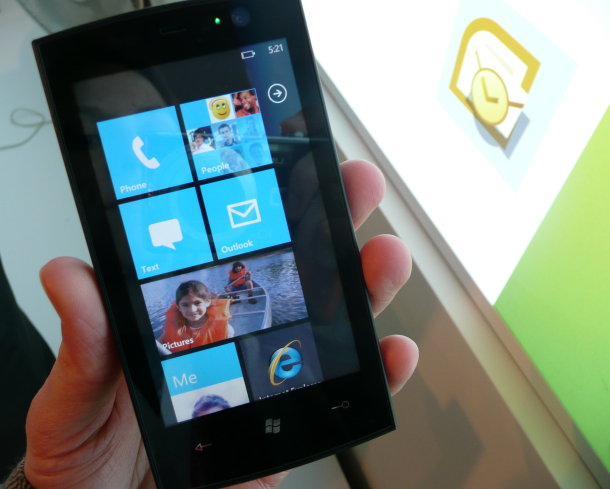iPhone, Android fastest growing in smartphone OS wars

Symbian, Windows Mobile see market share dip
The smartphone OS wars continue to rage - with new kids on the block upping their game to further erode the market share of their longer-toothed rivals.
Apple's iPhone OS and Google's Android open mobile platform grew the most last year, according to analyst house Gartner, with number one smartphone OS Symbian shrinking further.
Symbian lost 5.5 percentage points to end last year with 46.9 per cent market share, versus 52.4 per cent in 2008. Meanwhile Microsoft's Windows Mobile platform also lost out, shrinking by 3.1 percentage points to end 2009 in fourth place with 8.7 per cent market share.
Gartner said competitive pressure from the likes of Apple and RIM, along with "continued weakness" in Nokia's high-end devices portfolio, hit Symbian's market share.
Last week the Symbian Foundation announced its first release since going fully open source - Symbian ^3 - which could arrive on devices by Q3 this year. "Symbian had become uncompetitive in recent years but its market share, particularly on Nokia devices, is still strong," noted Roberta Cozza, principal research analyst at Gartner, in a statement. "If Symbian can use this momentum, it could return to positive growth."
Microsoft debuted a radical overhaul of its Windows Mobile OS with a new look UI at Mobile World Congress last week.
The software giant said Windows Phone 7 Series devices would be in the market in time for Christmas.

Microsoft's Windows Phone 7 Series on show at MWC - can the new OS turn Redmond's fortunes around?
Photo credit: Natasha Lomas/silicon.com
Apple's iPhone OS grew fastest last year, swelling by 6.2 percentage points to grab 14.4 per cent of the market - and third place in the smartphone OS rankings. Meanwhile, Google's Android gained 3.5 percentage points to reach 3.9 per cent market share - and sixth place - exhibiting slightly better growth than RIM's BlackBerry platform, which raised its share by 3.3 percentage points.
The BlackBerry platform commanded a 19.9 per cent share of the market last year, making it the OS second only to Symbian for market share, according to Gartner.
The analyst predicts Android's growth spurt will continue into 2010 as more mobile makers launch kit running the open OS platform. However, Cozza also sounded a note of caution, noting operator and device-maker concerns about Google's intentions in mobile.
"Android's success experienced in the fourth quarter of 2009 should continue into 2010 as more manufacturers launch Android products but some CSPs [communications service providers] and manufacturers have expressed growing concern about Google's intentions in the mobile market," she said.
At the start of this year the search giant launched its own-branded Android-based smartphone called Nexus One.
"If such concerns cause manufacturers to change their product strategies or CSPs to change which devices they stock, this might hinder Android's growth in 2010," Cozza warned.
Commenting on Gartner's report, Symbian Foundation executive director Lee Williams said the Symbian ^3 release "represents 10 years of investment and billions of dollars worth of code" now freely available to developers.
"This will foster even greater creativity and innovation in the mobile industry, as now any individual or organisation can take, use and modify the code for any purpose," he added in a statement.
In separate news, another mobile gadget - smartbooks - also look set for growth in the coming years.
Smartbooks are hybrid laptop-cum-smartphone low-power, always-on devices powered by chipsets such as Qualcomm's Snapdragon processor.
Analyst house ABI Research is predicting significant growth in smartbooks over the next five years, projecting 163 million units will ship worldwide by 2015.
Writing in a Smartbooks report, ABI Research senior analyst Jeff Orr notes that Apple's iPad is "technically" a smartbook, adding: "We believe the best opportunity in this ultra-mobile device market lies in new form-factors."